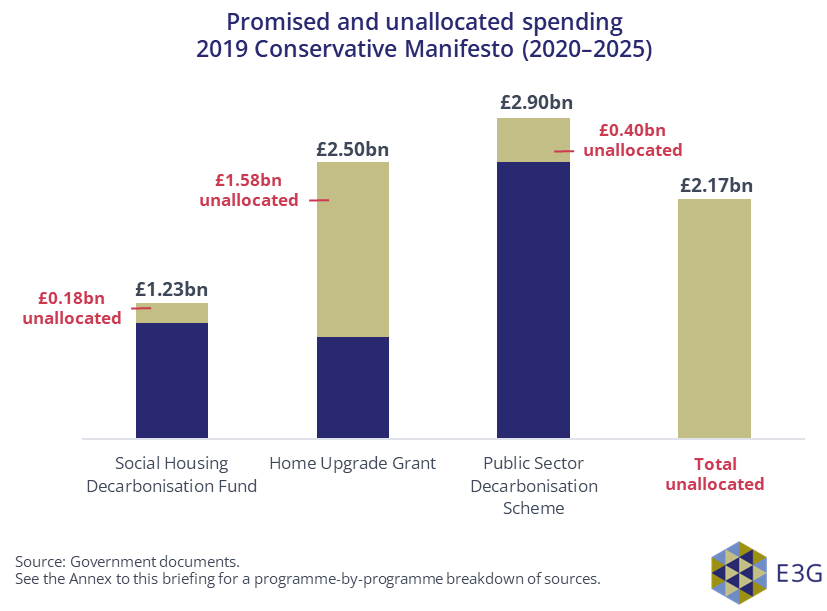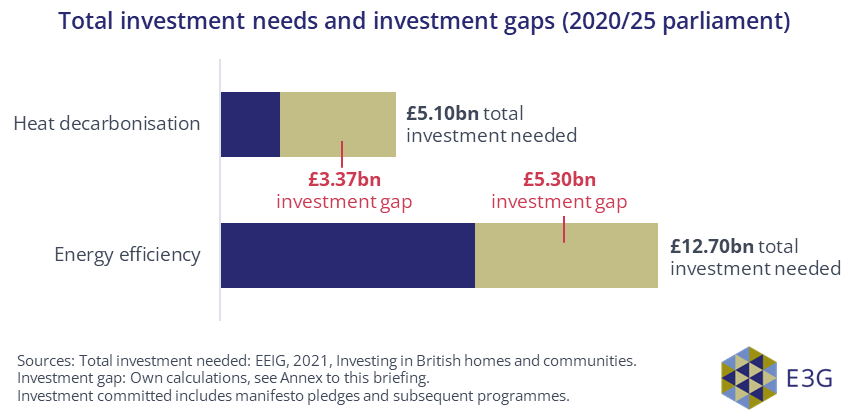As cold weather continues to bite in the UK, sky-high energy prices remain at the forefront of the national conversation. Everyone should have access to a warm, healthy home that is affordable to run, but this is far from the case. Decades of underinvestment in energy efficiency and clean heat means that the UK has some of the leakiest housing in Europe. The problem is exacerbated by regional inequalities in accessing support, skills and subsidies.
The UK has recognised the importance of energy efficiency – establishing a new Taskforce, and setting a target to reduce energy demand 15% by 2030. However, to show commitment to green homes, the government must grasp the thorny challenges associated with decarbonising our houses. The Spring Budget on the 15th March is an opportunity for the government to start addressing the warm homes postcode, ramping up nationwide delivery.
Government has not made good on its promise to fix our cold homes
The UK’s cold homes are a result of ongoing underinvestment in retrofit programmes E3G’s new analysis reveals that the Conservatives have not provided a third (£2.1bn) of the funding pledged for this Parliament to make buildings energy efficient and decarbonise heat (Figure 1). The 2019 Manifesto pledged a total of £9.2bn to 2030, of which £6.6bn was due between 2020-25.

We find that even more investment in our leaky buildings will be needed to get on track for carbon budgets set out by the Climate Change Committee, to a sum of £8.67bn (Figure 2).

Incentives and regulations to build back industry confidence
However, investment alone is not enough. There are challenges that stand in the way of delivering nationwide retrofit at scale in the UK. Years of boom-bust policymaking have left industry decimated, and the government must provide long-term certainty to build back the confidence needed to plan and invest in skills and supply chains. This includes through providing certainty through regulations to tighten energy efficiency standards and phase out fossil heating systems, as well as through the introduction of long-term incentives like Energy Saving Stamp Duty.
A lack of long-term certainty is compounded by “nuts and bolts” delivery challenges associated with current government-backed retrofit schemes, which are struggling to achieve their full potential. The UK’s cornerstone fuel poverty energy efficiency programme, ECO, is currently delivering at around a quarter of its intended scope, and energy efficiency installers report problems associated with meeting the scheme’s criteria. The government must work with industry to navigate these challenges and use these schemes as a springboard to build a mass market.
Fair funding to address the postcode lottery
Schemes like the Home Upgrade Grant offer generous support for rural fuel-poor households, but they are not nationally available due to the competitive nature of funding pots. Local authorities that are already engaged are most likely to successfully apply for these schemes. In areas struggling with the retrofit challenge, households are left even further behind, with nationally available schemes unable to plug these gaps. We call on HM Treasury to replace competitive funding mechanisms with fair distribution and availability of public investment in energy efficiency and clean heat across the whole country.
Building capacity and competence among local authorities to launch and deliver schemes in their areas will also be vital. Over time, this can help close the gap between the laggards and the leaders. Beyond this, local installers need support to build the skills, competencies and capacity to deliver programmes to a high standard across the country. The government must provide long-term funding with sufficient timelines to deliver local training programmes. This needs to be complemented by boosting household awareness and rolling out a network of regional trusted advice services across the country.
Meeting the UK’s new energy demand reduction target will require addressing the current investment gap, and building firmer foundations that help ensure that funding can be further scaled in the future. The government can provide confidence and address key issues that currently make access to warm, healthy homes a postcode lottery. Key things we’ll be looking out for include:
- A ten-year funding and policy pledge for climate and fuel poverty targets, fulfilling the outstanding £2.1bn Conservative Manifesto pledges and addressing the climate investment gap.
- Replace competitive funding mechanisms with fair distribution and availability of public investment in energy efficiency and clean heat across the whole country.
- Cross-departmental efforts to ensure effective delivery of retrofit schemes, pragmatically navigating the barriers holding back action at scale.
- Level up access to supply chains and consumer support – with an emphasis on skills and training, consumer awareness and advice.
- Support new financing options and incentives, including through the UK Infrastructure Bank and tax incentives like Stamp Duty.
Read more in our related briefing, The UK spring budget and the retrofit revolution.



